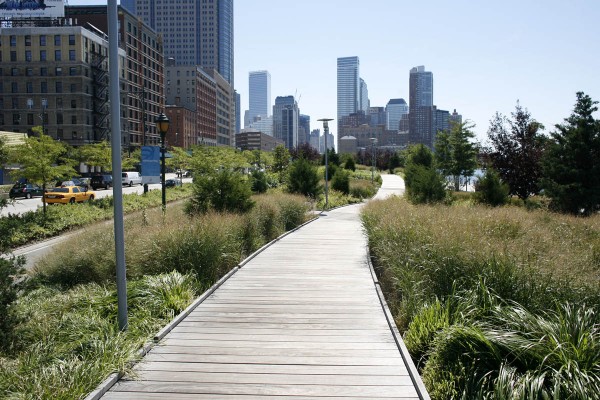TALKING POINT
BY DEBORAH J. GLICK | I read “The Hudson River Park must generate more revenue” (talking point, by Diana Taylor et al., March 28) with interest, and am pleased that the Hudson River Park Trust board of directors seems to be willing to move beyond the proposal for residential development at Pier 40. And while it’s true that the task force created by the Trust was attended by local elected officials and community board chairpersons, as well as others with direct interest in the park, the agendas were developed by the Trust and reflected the Trust’s desired changes to the Hudson River Park Act, most notably the desire to allow residential development within the park, which they pressed for vigorously against strong objections.
Whether or not we agree that the best way for parks to be funded is to require them to generate funds for their own upkeep, regrettably that is the structure that was set in the legislation creating the Hudson River Park. Unfortunately, the Trust has curiously undermined aspects of the law that would have provided the park with more funding. For example, recognizing a need for ongoing income, the park’s founding legislation includes a requirement that the passenger ship terminal, at W. 52nd St., share revenue with the park on an ongoing basis. The revenue share was to be 15 percent for the first five years, and then increased to 20 percent. In view of the focus on the park’s finances it was an unpleasant surprise that the Trust agreed in 2006 to waive those revenues for 20 years, without any public hearing as required by the legislation. It’s not clear how much money has been lost, but it is a well-documented fact that there has been a dramatic increase in commercial activity at the passenger ship terminal.
Another opportunity to create a funding stream for the park was lost when the Trust did not heavily lobby Trinity Real Estate during the recent Hudson Square rezoning process. There is no doubt that the Hudson Square community will view the Hudson River Park as a neighborhood amenity, and it is likely that real estate interests will sell apartments on that basis. While I, and others, pushed for ongoing contributions to the park to be a cornerstone of the rezoning agreement, the Trust and the city administration showed an unwillingness to link the two projects. It should be noted that the paid facilitator for the Hudson River Park Task Force was also associated with the Trinity application for the rezoning of Hudson Square, but resigned when it became apparent that there was a glaring conflict of interest. Fortunately, when the rezoning came before the City Council, Speaker Quinn did get a one-time contribution for Pier 40 to help pay for the repair of the roof but I found the Trust’s lack of support on this issue to be surprising.
Now the Trust is actively pursuing a neighborhood improvement district (NID) that would provide a new revenue stream by taxing those living close to the park. While I am glad that the Trust is pursuing a revenue stream that is not reliant on inappropriate development, I worry that it is undercutting its own efforts by excluding two neighborhoods on the horizon, Hudson Square and Hudson Yards. These neighborhoods will bring thousands of new residents, many of whom are likely to be children, to the neighborhood and yet they would not be party to the NID or required to make any other sort of financial contribution to the ongoing operations of the park.
While the Trust’s talking point in The Villager continues to focus on the benefits of residential development, even as they recognize that the focus on residential has proven to be a regrettable distraction, I remain hopeful that we can turn the page and move forward. In order to do so, the Trust needs to commit to a more communicative process that includes the general public, if we are to see an appropriate collaboration between the Trust and the West Side neighborhoods that use the park. Thus far, the task force route has proven to be an inside game that lacks transparency and does not allow for stakeholders to vet any ideas before the public; it is my hope that we can now work together with the public to come up with viable and appropriate solutions to help sustain our park.
Glick is assemblymember, 66th District




































